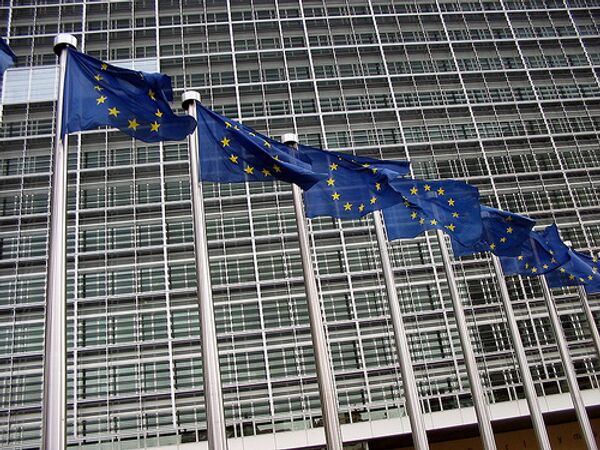The European Union slapped an embargo on Iranian oil supplies on Monday, the Council of the European Union said in a press statement.
The toughest measure yet to force the Islamic Republic to drop its controversial nuclear plans and return to negotiations, the move stipulates an immediate ban on all new oil contracts with Iran, while existing contracts will be honored until July 1.
During a meeting in Brussels on Monday, the 27 EU foreign ministers also agreed to freeze the assets of the Iranian central bank.
The sanctions are expected to come into force as soon as this week, Reuters said.
Speaking before the meeting, EU foreign policy chief Catherine Ashton said the sanctions were intended to "make sure that Iran takes seriously our request to come to the table and meet".
Russian Foreign Ministry denounced the sanctions in a statement on Monday, saying that they are ill-advised and likely to backfire.
“It’s an obvious pressure and dictate, an attempt to ‘punish’ Iran for stubbornness. This is a deeply wrong policy, and we have repeatedly pointed as much to our European partners. Iran would make no concessions under such pressure,” the statement said.
The step comes as tensions over Iran's nuclear activities have reached boiling point since the Islamic Republic announced earlier this month that it had launched a nuclear enrichment program at a well-protected underground facility near the holy Shia city of Qom.
Western nations suspect Iran, which is already under numerous international sanctions, of pursuing a secret nuclear weapons program but Tehran insists it needs nuclear power solely for civilian purposes.
Tehran has threatened to block the Straight of Hormuz, a strategic waterway where an estimated 40 percent of the world's seaborne oil passes, in response to Western plans to ban Iranian oil imports.
Of some 2.2. million barrels of daily Iranian oil exports, 18 percent is bound for European markets, according to the U.S. Energy Information Administration. Oil exports make up some 60 percent of the Tehran’s revenues.
Greece, Italy and Spain consume a total of 68 percent of the Iranian oil imported to Europe, with Greece being the largest consumer, accounting for 35 percent of the imports.
As the EU ministers were preparing to approve the ban, Russian Foreign Minister Sergei Lavrov said on Monday that Moscow had “quite a steadfast hope” that the talks on the Iranian nuclear problem could resume “in the nearest future.”
“The EU High Representative [for Foreign Affairs] Catherine Ashton should establish contact with the head of the Iranian Security Council [Saeed Jalili] and based on the results of their contacts, we will push to set a concrete date to resume the talks,” Lavrov told journalists in Russia’s Krasnodar Region, adding “we will restrain everyone from abrupt moves.”
Unilateral sanctions, he said, “do not help” when trying to overcome the Iranian nuclear deadlock.


